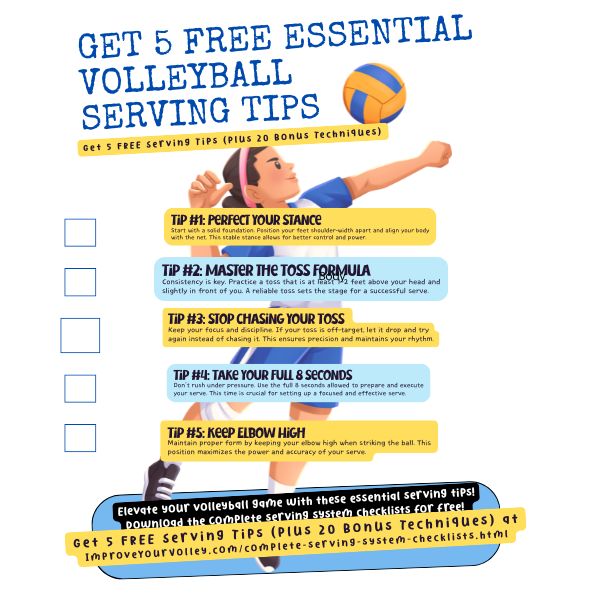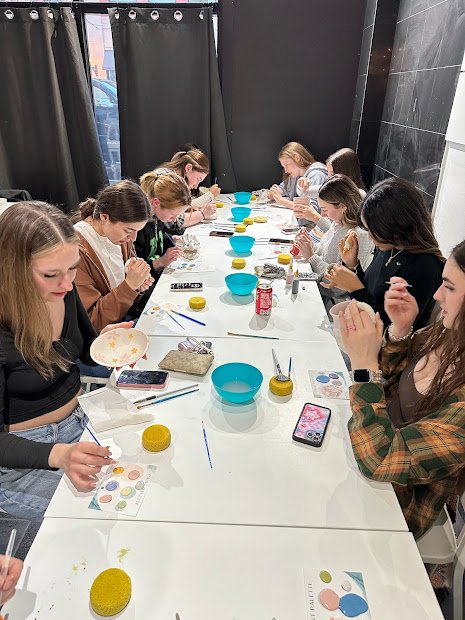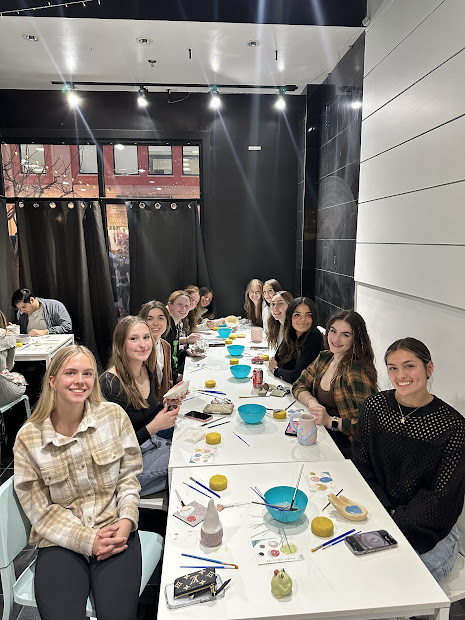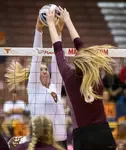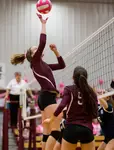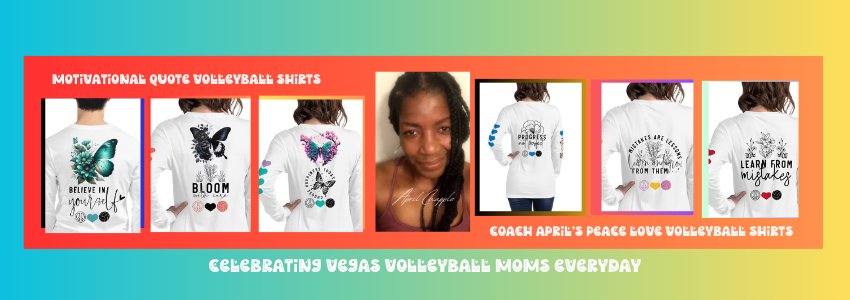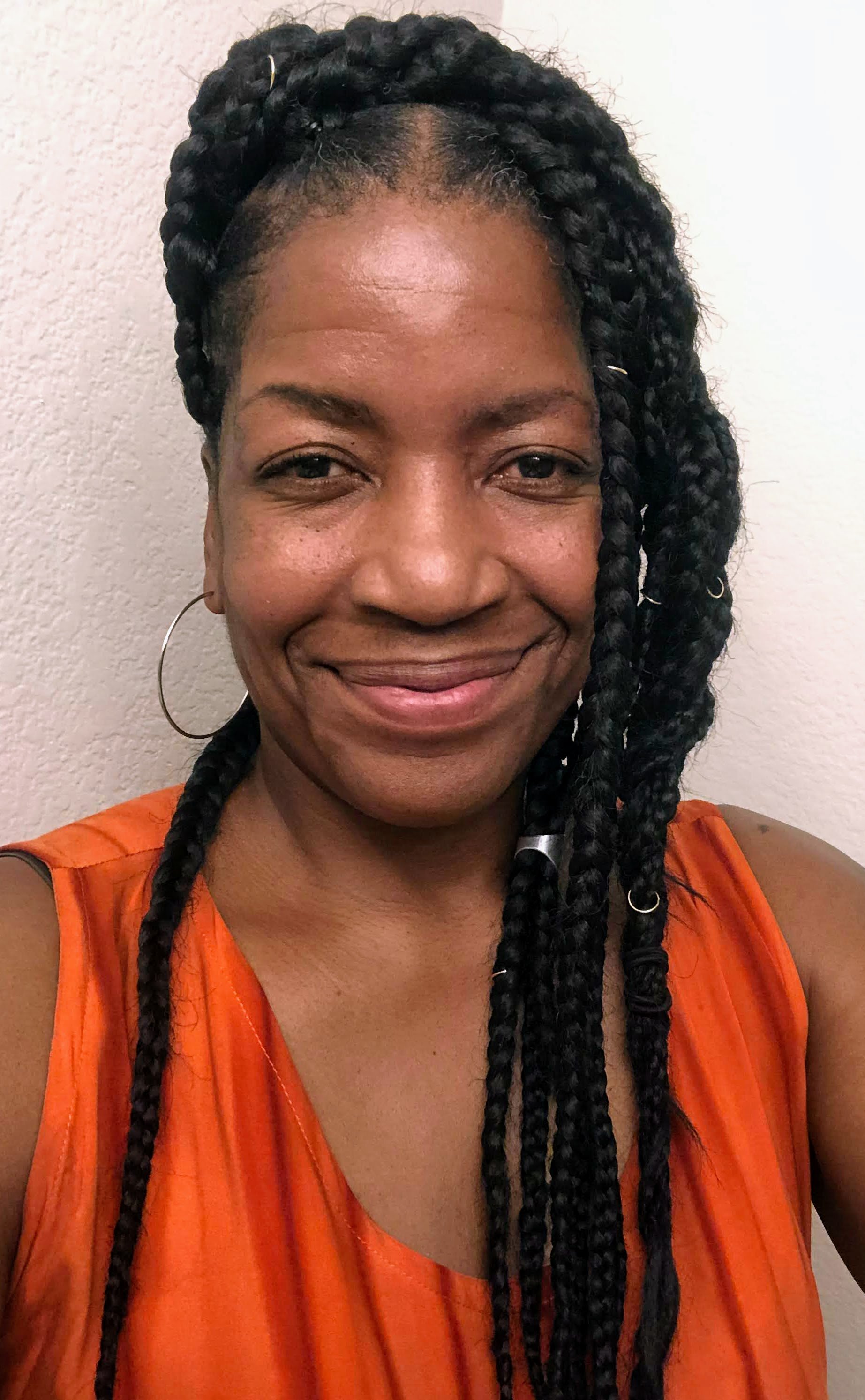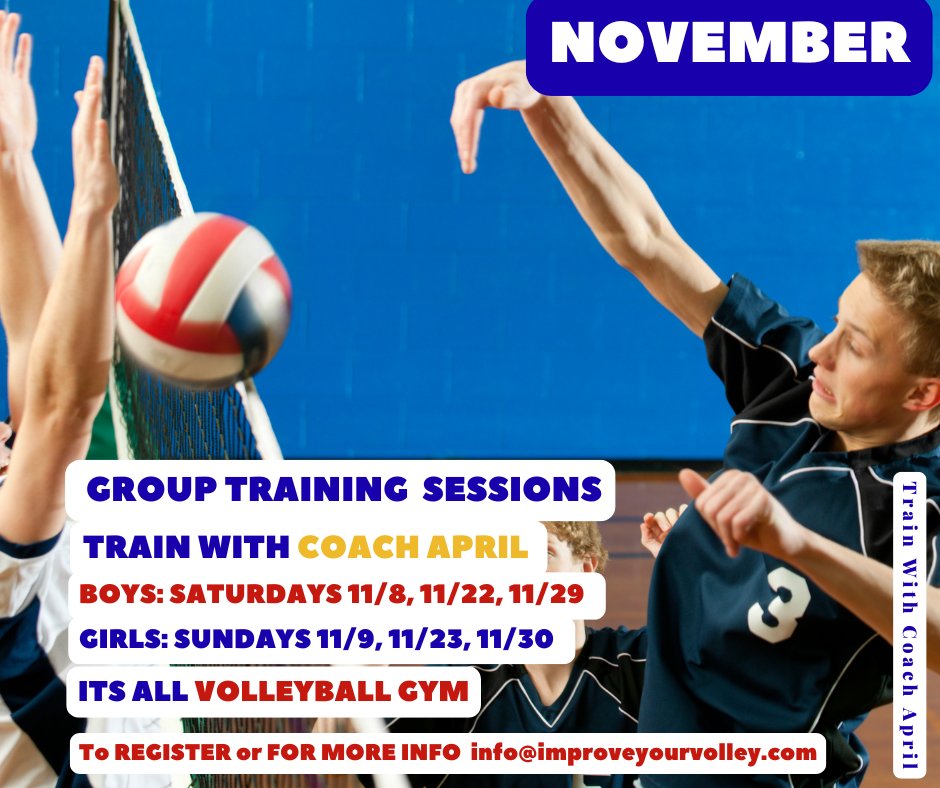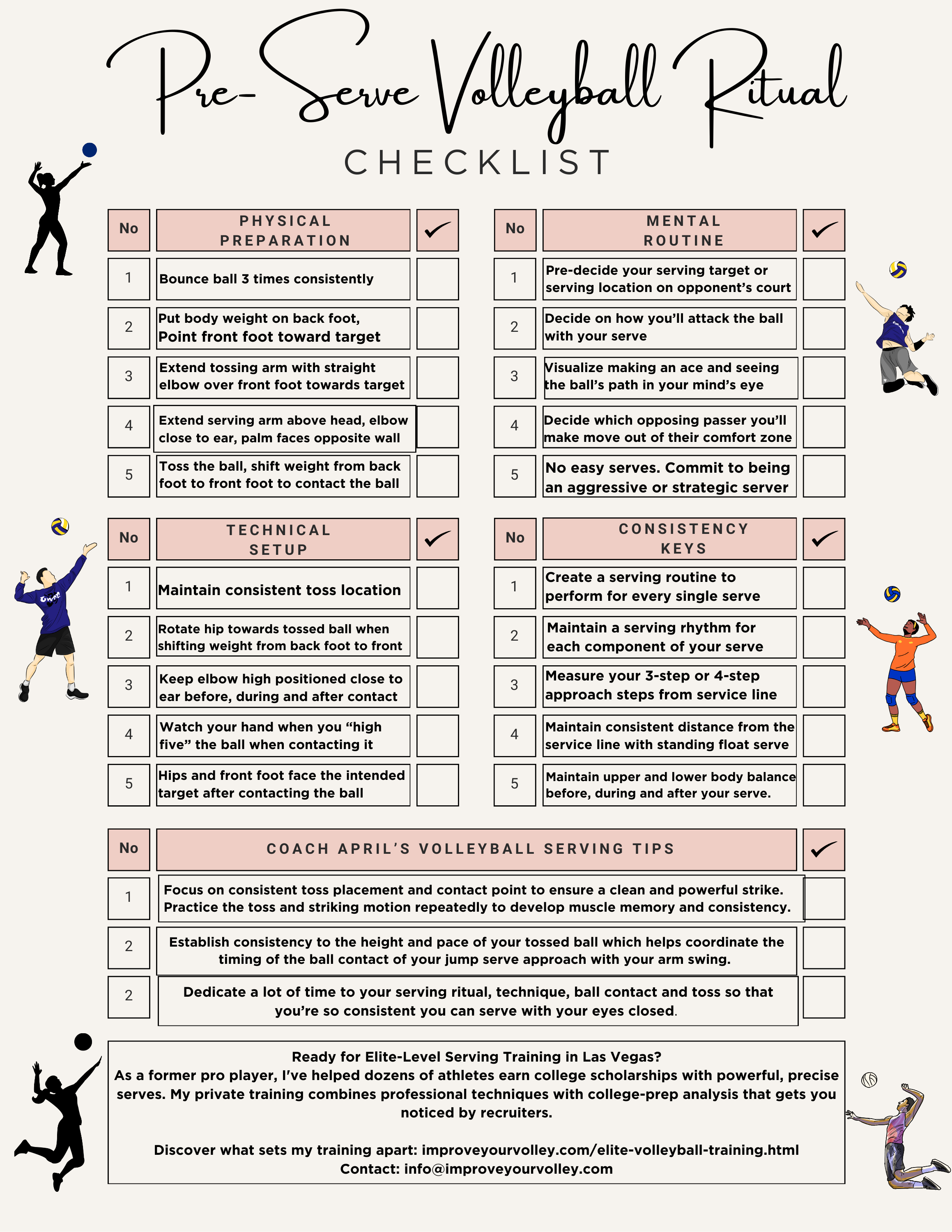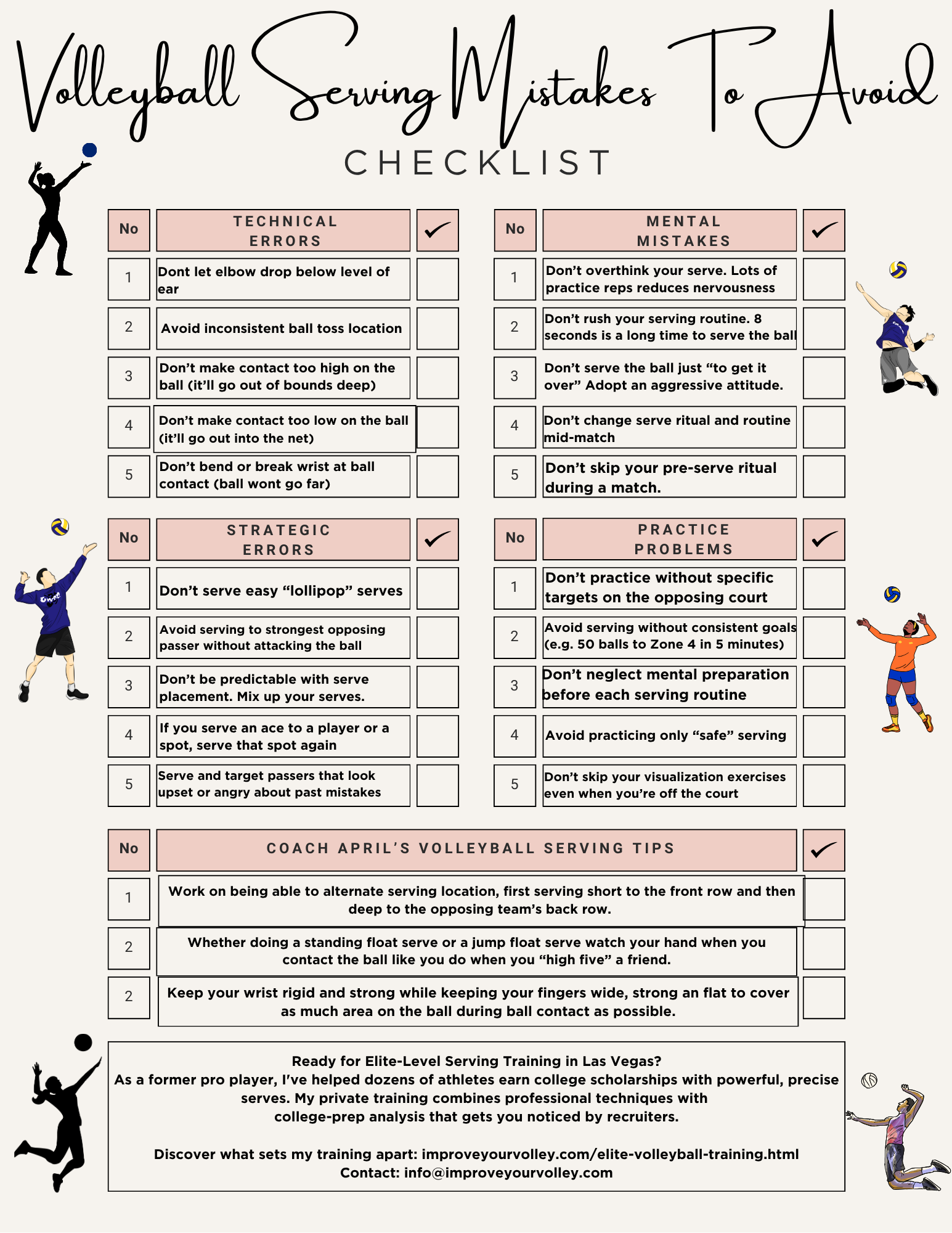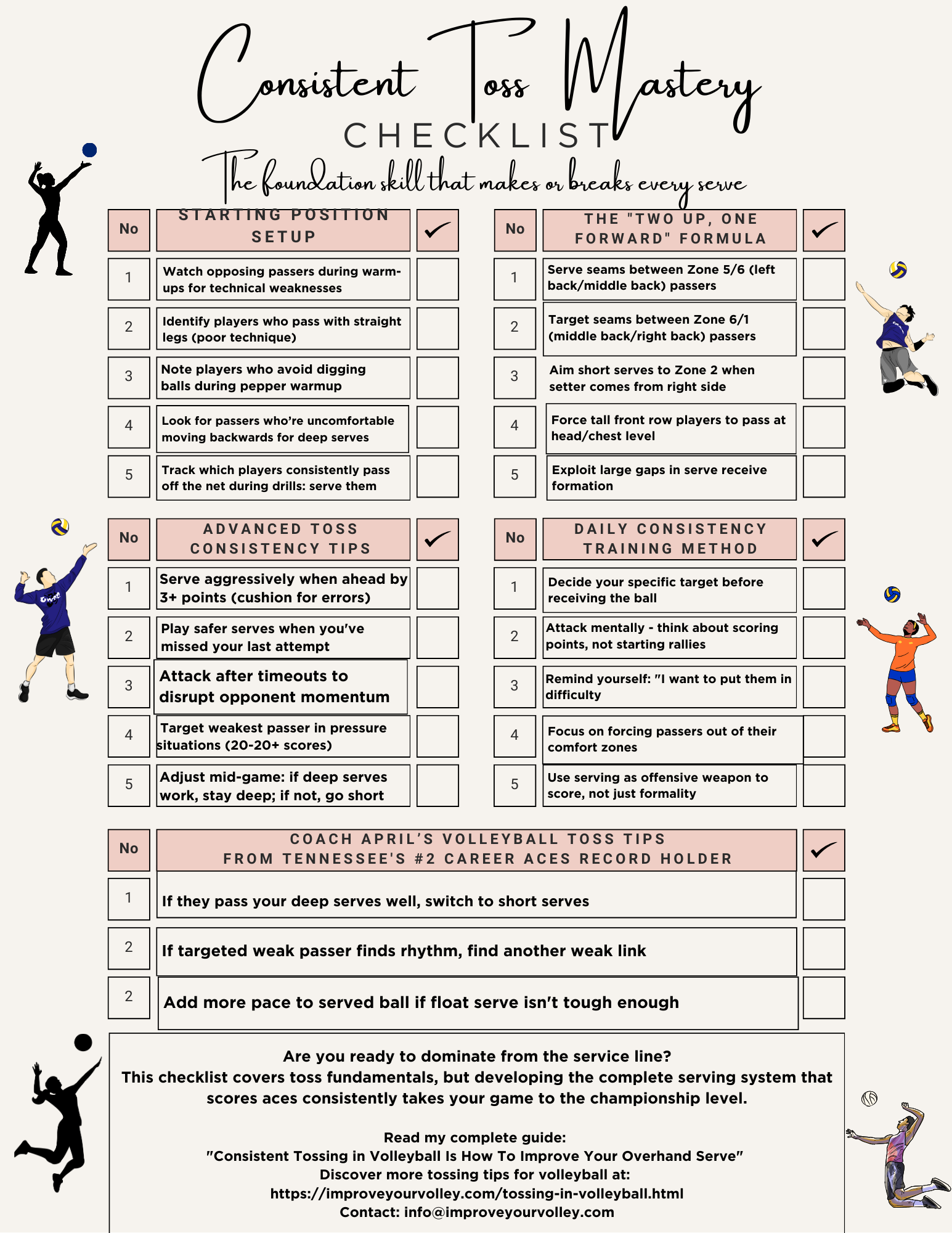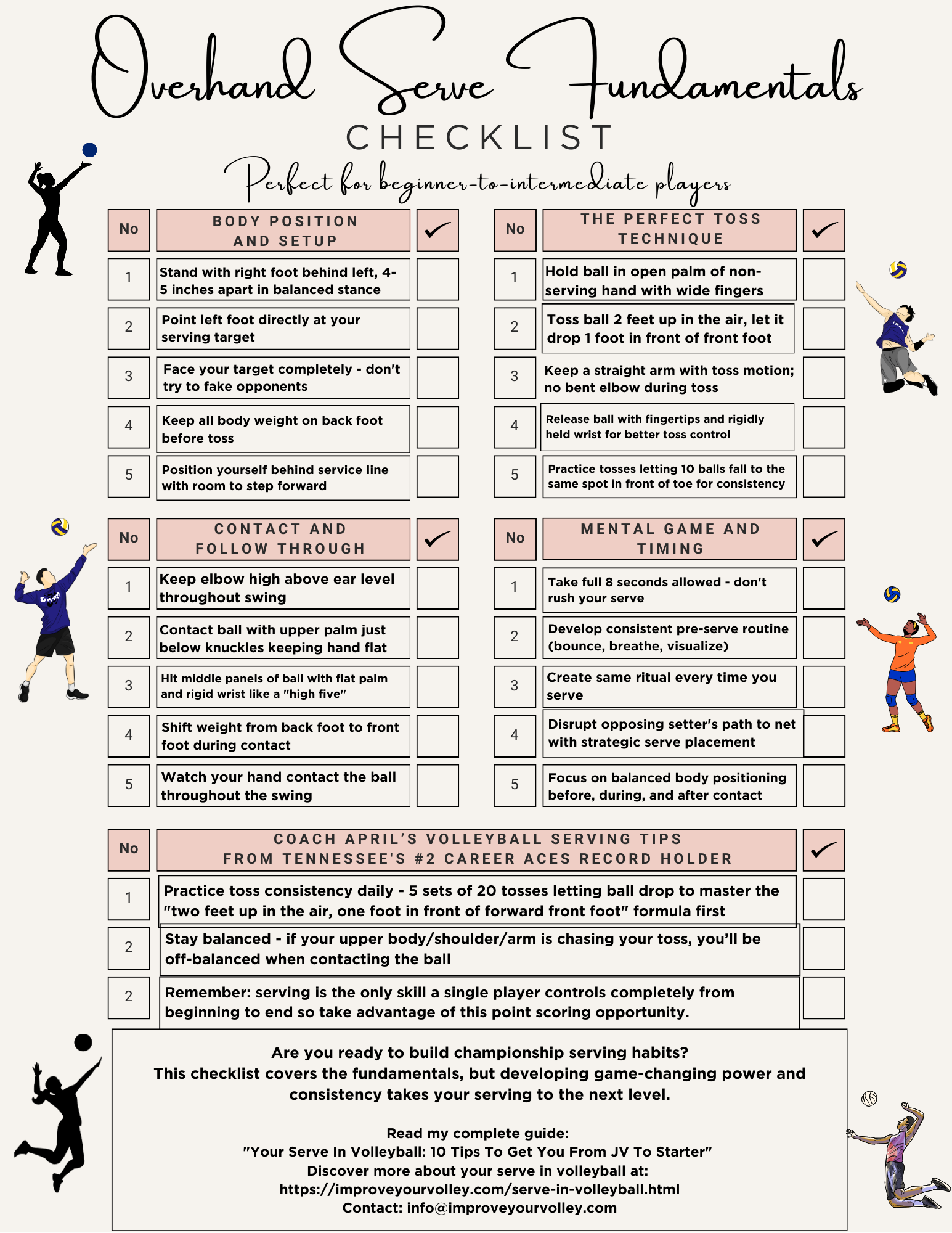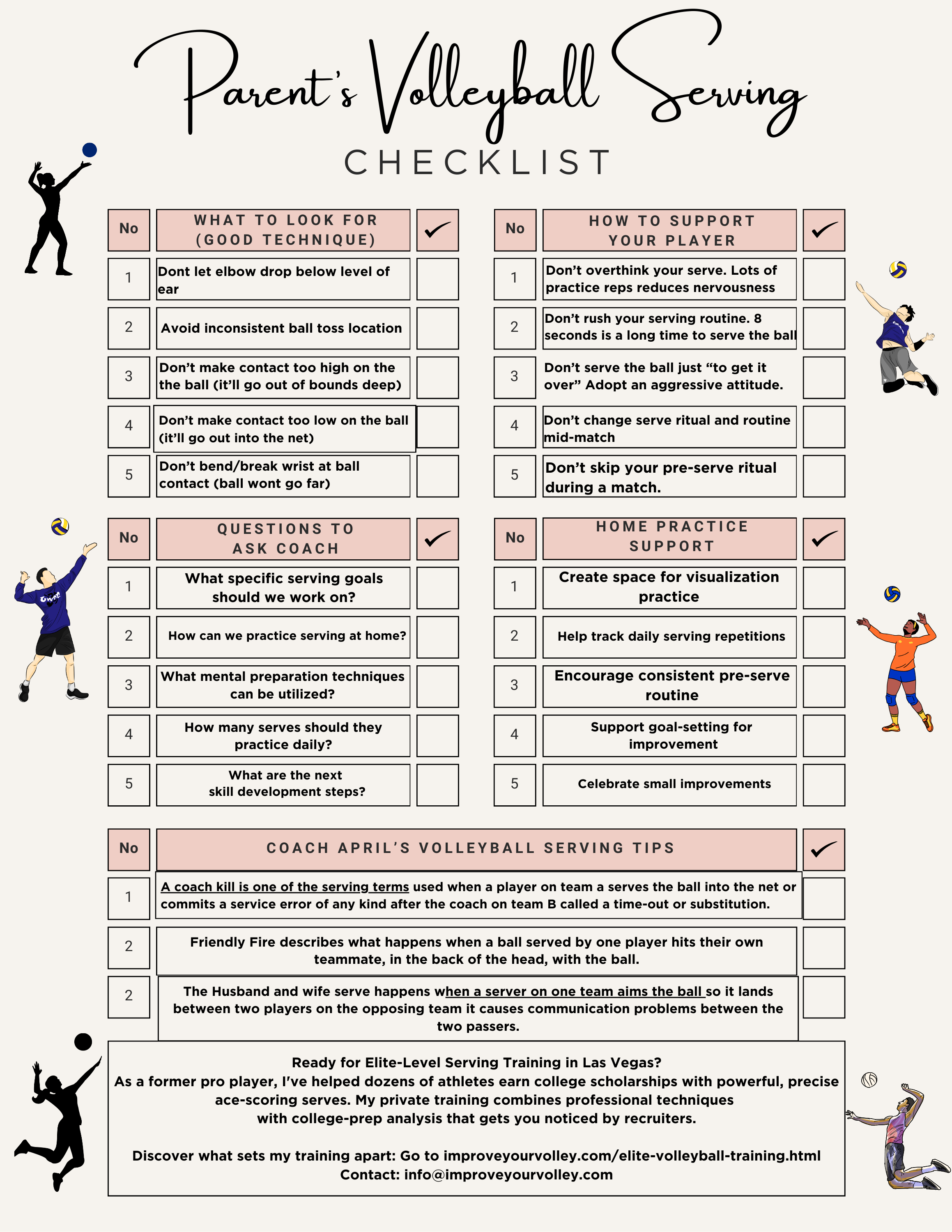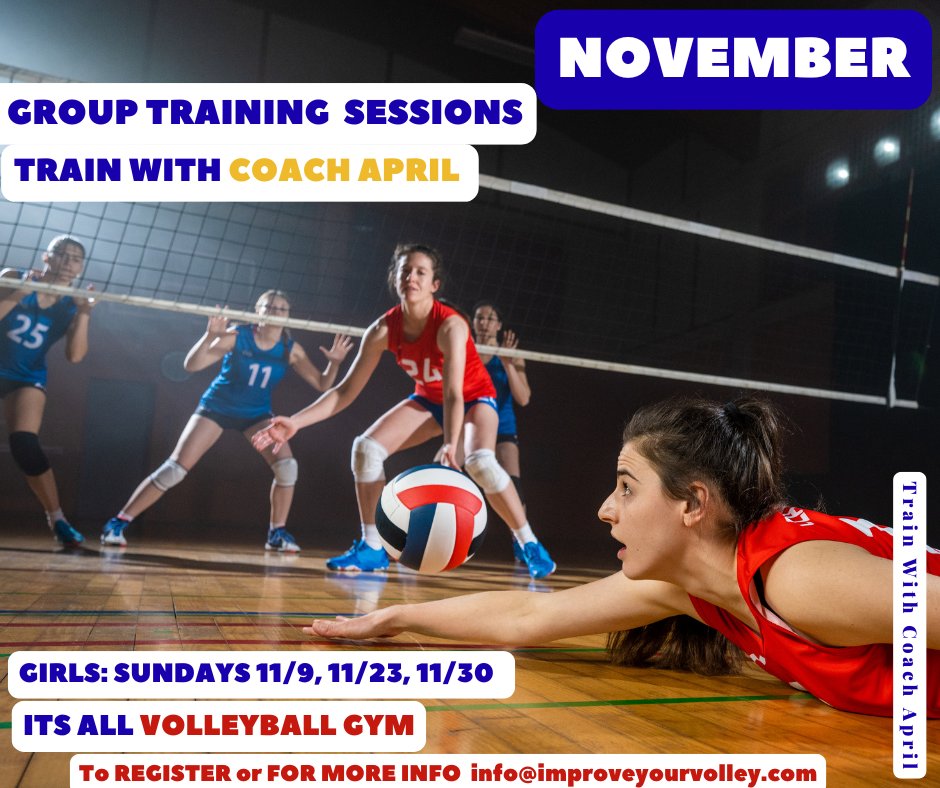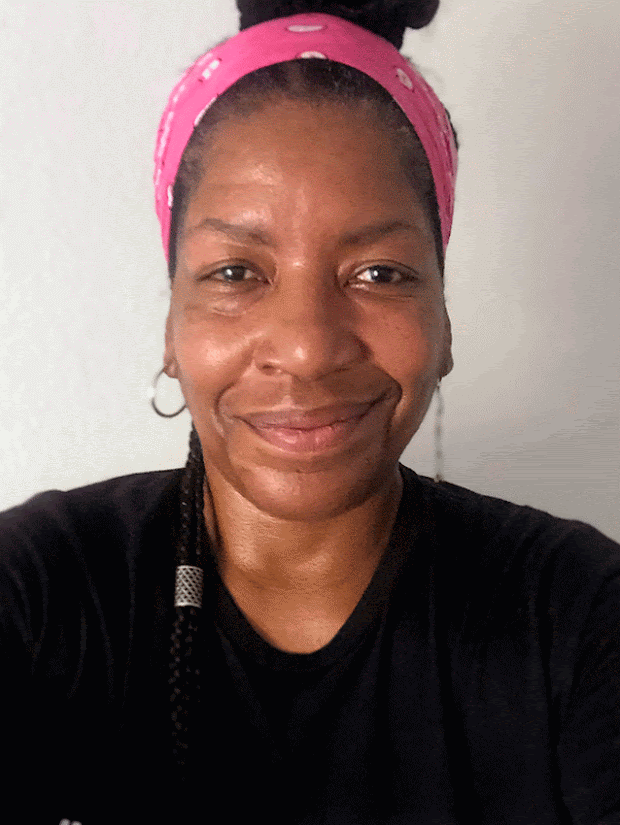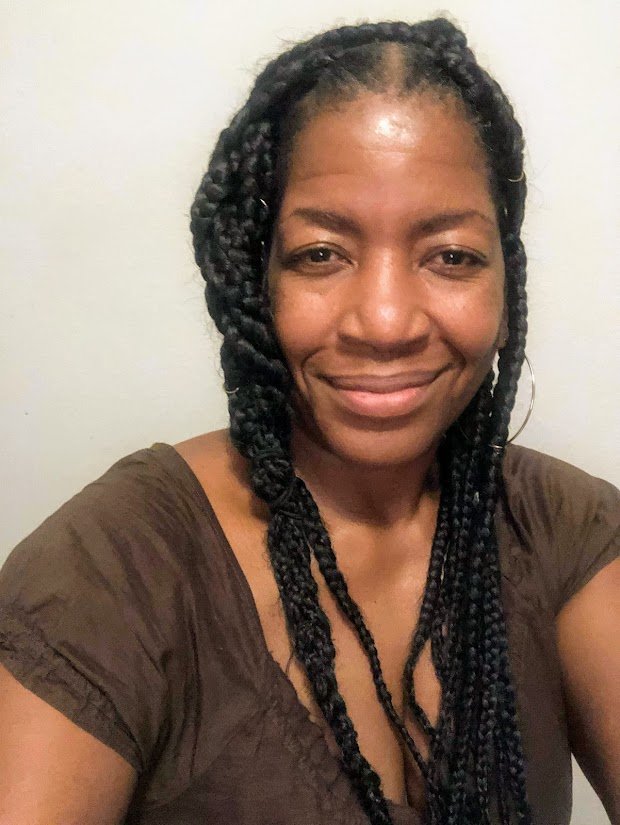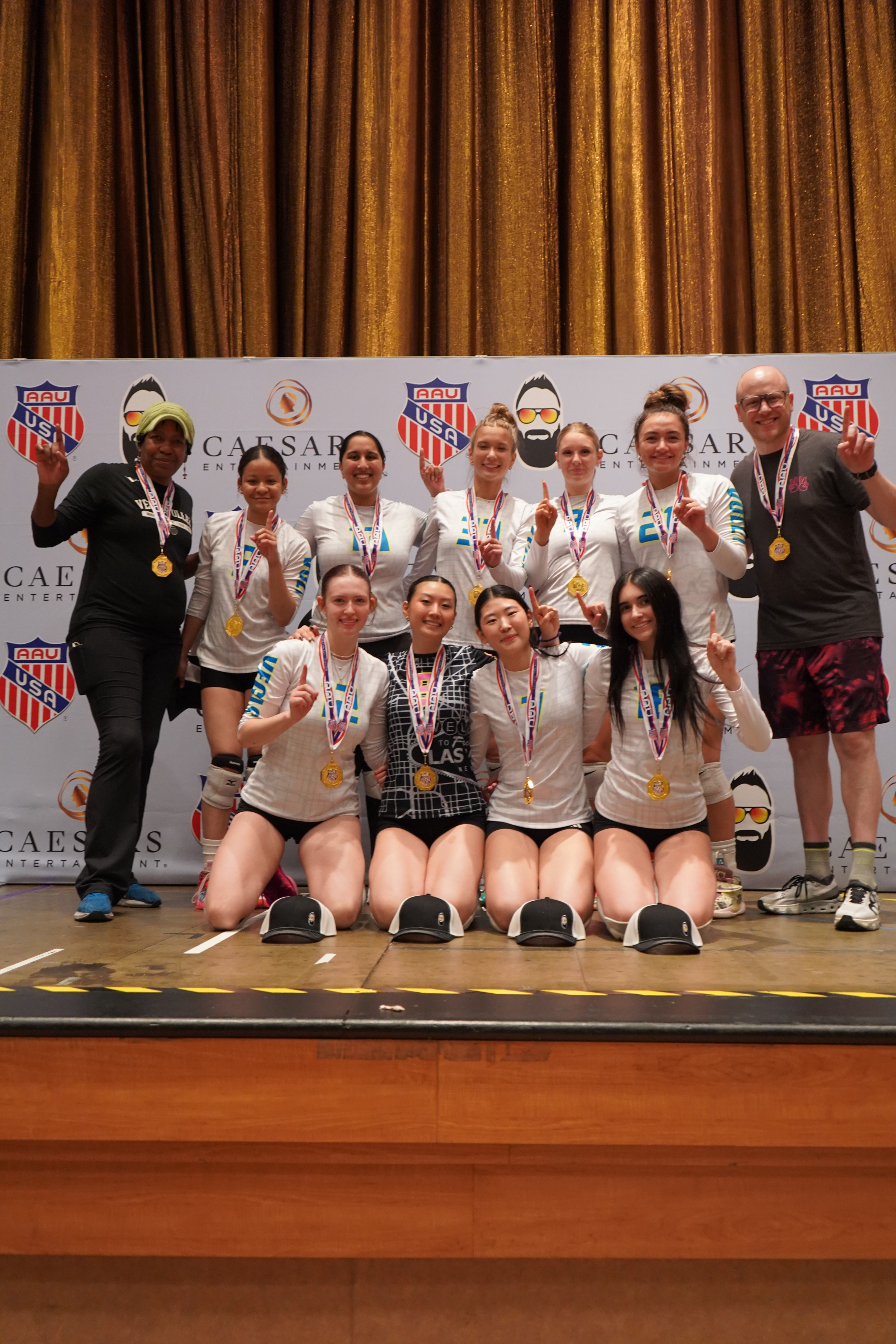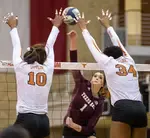- Improve Your Volleyball with Coach April
- Learn How To Coach Girls Volleyball
- Team Building Activities for Volleyball
Team Building Activities for Volleyball: A Freshman Coach's Guide
Boost Your freshmen team's chemistry! Discover fun and effective team building activities for volleyball freshmen players to improve communication and teamwork.
If your athlete struggles with consistent serve receive, gets subbed out, or is overlooked for playing time—this is the fix you’ve been looking for.

Struggling with passing consistency?
I help talented passers tired of getting pulled from games because of inconsistent serve receive skills BUILD passing confidence without expensive private lessons using the same 3-step system that's helped dozens of my athletes get recruited.
Download my eBook for $17.99 and start building the passing confidence that keeps you on the court—and gets you seen by college coaches.
Welcome to the fun world of planning practices that include team building activities for volleyball high school freshmen.
My Volleycats Elite 17s team worked together to memorize the moves and choreography to do this fun team building activity. Missing is the youngest member of the team, starting setter 14-year-old Kami Miner, now the starting setter for the Stanford women's volleyball team and USA National team member.
I want to look into the different types of team building ideas, exercises, games and drills you can use that will help you help your freshmen players meet, get to know, communicate and trust each other while quickly building team unity for this upcoming high school season.
I'll guide you through a wide range of team building ideas for volleyball, quite a few that I use all the time, to help you begin your preseason successfully.
Building Bonds with Volleyball Team Building Activities
First up, I want to talk about how to improve your team's chemistry something that high school coaches of all levels, but especially freshmen coaches, want to focus on at the beginning of the season.
One favorite method of mine is to use a drill or some would call a game called the Human Knot Game.
The Human Knot Game
I've used this game before with my 18s teams and my players loved the idea of having to work together to figure the problem out.
What's great about this team building drill is that teammates who 'don't or who haven't talked to each other before this drill quickly learn they have to talk to each other at some point during this exercise.
Players who may be shy or aren't used to being heard or listened to, learn that they too have something to contribute to the person in front or beside them and learn to get comfortable in their own skin speaking up and contributing to the team's success.
And those players who're used to talking and not listening to others very much, figure out quickly, that they don't always have the answers that the teammates closest to them need to hear and so they have to use cooperation and active listening skills in order for the greater team goal to be accomplished.
I decided to do the Human Knot drill at the beginning of practice before our warmup drills for several of the first preseason daily practices because I saw how new players on my newly formed teams interacted among each other before the Human Knot game started and after the time allotted ended and it really helped introduce players to each other and start working together, listening to each other and building trust right away.
How Do You Do The Human Knot Game?
Here's how you do the Human Knot Game.
Have your players stand in a circle, and then have them reach out and hold hands, using the right hand with one player and the left hand with another player, so with two different people that are located either across or beside them.
Now, the challenge is to untangle themselves without letting go of hands.
Each time someone in the group let's go of hands then you start over again.
I always allotted about 5-7 minutes after our team board talk and before our team warmups began for a week or two to give the team time to solve the problem.
It's a fun icebreaker that requires cooperation, communication, active listening skills, leadership and trust—keys to effective team bonding.
Scavenger Hunt
Another one of the great team building activities for volleyball that I've done before is the Scavenger Hunt.
I love this game.
Here's the volleyball version of the Scavenger Hunt.
Divide your team into small groups and give them a list of items or tasks to complete around the school or gym.
This is one of the team building activities for volleyball that encourages players to work together and helps boosts teamwork as they have to work together and listen to each other as they work to solve clues and complete each challenge.
An added bonus is it helps them get familiar with their new environment.
Compliment Circle
One more for chemistry: the Compliment Circle.
At the end of practice, gather your team in a circle, and have each player say something positive about the person to their right.
Caterpillar Chats: Volleyball Team Building Exercises for Communication
Let's talk about team building activities for volleyball freshmen players that help enhance and encourage communication.
I always talk about how important it is to coach effective communication skills which is an important team element that's crucial for the team success on and off the court.
Silent Volleyball Drill
This sounds like fun and I haven't tried it yet but I will, probably with one of my boys teams. .
Start your practice with the Silent Volleyball Drill.
Players must play a game without talking, relying only on eye contact and nonverbal cues.
Caterpillar Drill
Another one of the effective team building activities for volleyball that I've tried is the Caterpillar Drill.
Players line up in a row, with each person holding the waist of the person in front of them.
The goal is to move as a single unit from one side of the court to the other, which requires constant communication and coordination.
It's a fun way to improve timing, communication and teamwork.
Team Meetings
Don’t forget about Team Meetings.
Set aside time after practice for open discussions where players can voice their thoughts and concerns in a safe monitored environment.
Team meetings are beneficial in opening up conversations and getting teammates to explain things among themselves that they probably wouldn't have known about each other.
- Make sure everyone gets a chance to speak by having everyone sit in a circle and go around that circle one player at a time to discuss an issue or ask a question that needs to be answered in order to get the discussion going
- The speaker shouldn't be interrupted by others.
- Coaches can instruct anyone who has a question or a rebuttal or a reply to do it AFTER the person who's turn it is to speak at the time has finished EVERYTHING they want to say.
- The coach can ask the speaker if there's anything else that they want to add or say. And then me as the coach and moderator will thank each speaker once they're done.
"Thank you Ann I heard what you had to say and I appreciate what you contributed to us today"
Does anyone have a comment or need clarification on what Ann had to say?
- As a moderator, the coach should make sure replies do not become verbal attacks but they are questions calmly and coolly and fairly asked and once the question is asked that the speaker has the space and time to respond in a fair active listening peaceful environment.
Sometimes these sessions can get emotional so young coaches need to be okay with moderating a meeting where players may cry when trying to explain and express themselves in a group environment.
Team meetings are meant to improve active listening skills, reduce team drama and create an open, trusting environment.
Practice Makes Perfect: Engaging Team Building Activities For Volleyball
How To Start Volleyball Practices With A Team Building Activity
Now, let's focus on how to start effective practices that use team building exercises for volleyball.
Start each session with a team-building warm-up.
You can use activities like Partner Passing where players need to complete a set number of passes while talking to each other while maintaining a dialogue.
This activity combines skill-building with communication practice.
Trust Fall Exercise
Incorporate the Trust Fall Exercise into your practices.
It’s not just for corporate retreats!
Have players take turns falling backward into the arms of their teammates.
It may seem simple, but it significantly boosts trust and accountability.
Human Worm Game
To make practices more engaging, implement the Human Worm Game.
Players lie side by side with shoulders touching and have to wiggle and move without letting go of the person next to them.
It’s a laugh-out-loud funny good time that builds both team chemistry, physical coordination and team unity.
Communication shouldn't stop at words.
Develop nonverbal cues or hand signals for key plays or strategies.
Spend time each practice reviewing these, emphasizing their importance in fast-paced game situations.
This can really set your team apart by creating seamless on-court communication.
Visualization Exercises
Let’s not forget the mental aspect of the game.
Visualization Exercises can be a powerful tool for players to use to play the game mentally, in their head, before they have to physically play the game on the court.
I have players lay full length on the floor quietly with eyes closed and then as I speak we first will go through a full body relaxation exercise where players are asked to tighten and then release the muscles of each major bodypart moving from head to toe or toe to head.
Then I talk them through seeing themselves performing each stage of each skill and performing their roles perfectly in various scenarios.
It's a technique used by elite athletes worldwide to build confidence and focus.
I can attest to this exercise because I use to do visualization exercises when I was on the US National team all the time. And it helped me feel prepared for the upcoming match because visualization lets your brain feel like they've played a game before playing the game.
Buddy Systems
Accountability is vital.
Implement Buddy Systems where teammates check in on each other’s progress.
Hold them accountable for not just physical performance but also attitude and teamwork.
This instills a sense of responsibility that transcends into game-time performance.
I give my team's homework each season so teammates are paired together so they can keep each other accountable.
Volleyball Team Building Games
Incorporating Volleyball Team Building Games like the Pepper Drill with a twist can keep things fresh.
Divide the team into pairs, but each time the ball drops, players must share something they appreciate about their partner. It's a blend of skill work and positive reinforcement.
Circle of Trust
Another team building activity idea is the Circle of Trust.
Form a circle and have each player put a volleyball in the center. Players call out someone’s name and throw them a ball.
That person must catch it while making eye contact. It sharpens reaction times and reinforces trust.
Board Games
During downtime especially during trips to tournaments, consider having players participate in Board Games or card games that promote strategy and teamwork—games like Pictionary or Charades.
These not only provide a mental break but also encourage creativity and fun.
Role Reversal Drills
Include Role Reversal Drills in your practice.
Let front row players rotate to the back and vice versa so liberos get a chance to play middle and middles get a chance to play defense in the backrow.
This fosters understanding and appreciation of each role, enhances communication between back row players and front row players, and builds a well-rounded team.
Journal Reflections
Use Journal Reflections as a method for players to write down their thoughts, goals, and reflections after each practice.
Review these journals periodically to understand their mindset and areas where they might need guidance or encouragement.
Finally, keep things light with the Volleyball Olympics.
Volleyball Olympics
Set up a series of fun, volleyball-related challenges (like who can get the most serves in a row or who can dig the most balls).
Award medals (even if they’re just paper) to celebrate achievements. It's a great way to foster a competitive yet friendly spirit.
By weaving these team building strategies into your training and interactions, you'll not only build a more cohesive and communicative team but also create an enjoyable environment that players look forward to being a part of.
Remember, young coaches the foundation you lay now will set the stage for a successful and fulfilling season this year.
Good luck!
Do You Follow Me on Pinterest?
Follow me on Pinterest Volleybragswag to improve your game even faster!
I share alot of individual, partner and easy-to-do volleyball serving drills we do in class with my followers.
Many of these volleyball practice drills you can do at home by yourself or try at your next practice with your teammates.
If you're a B team or JV player trying to make varsity next year...your goal should be to complete 1000 reps a day of at least three of the basic skills on your own...volleyball passing, serving and setting should be at the top of the list.
From Lady Vol to Legend: Coach April Produces Powerful Passionate Players...is that you?
What Are You Looking For?
Click to Download Your Pre Serving Ritual Mastery Checklist pdf:
🎯Volleyball Pre Serving Ritual Guide -
Players! Learn How To Transform Your Serve from Weak to Weapon
Click to Download Your Parent's Volleyball Serving Checklist pdf
🎯Parent's Volleyball Serving Checklist Guide
Parents! Help Your Player Develop Championship Serves (Even If You've Never Played)
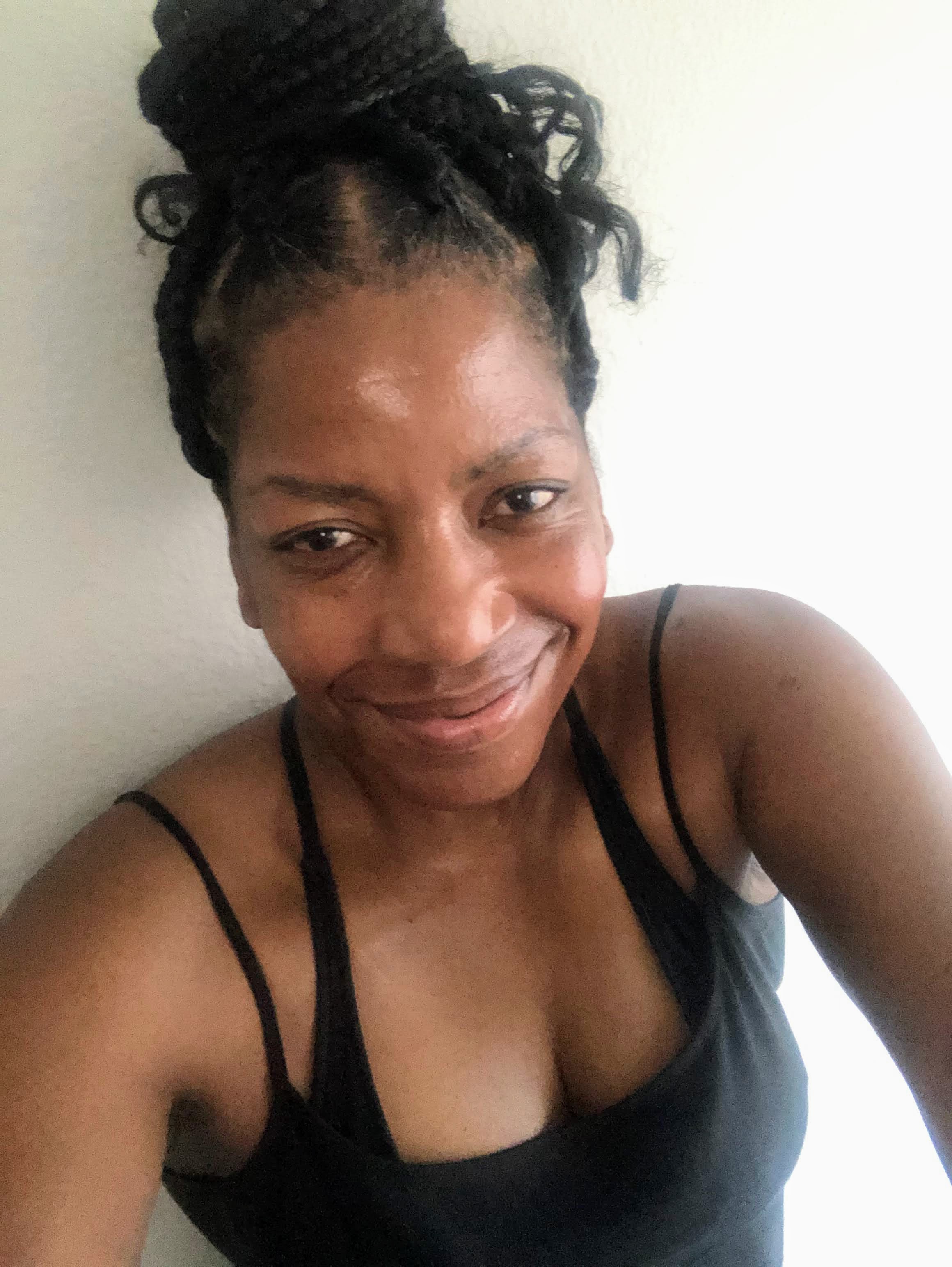
Hi there!
Thanks for stopping by. Hope you learned something today that will help you reach your volleyball goals.
Be sure to subscribe to my email newsletter so you can learn more each week!
Stay strong! Stay motivated!
-Coach April
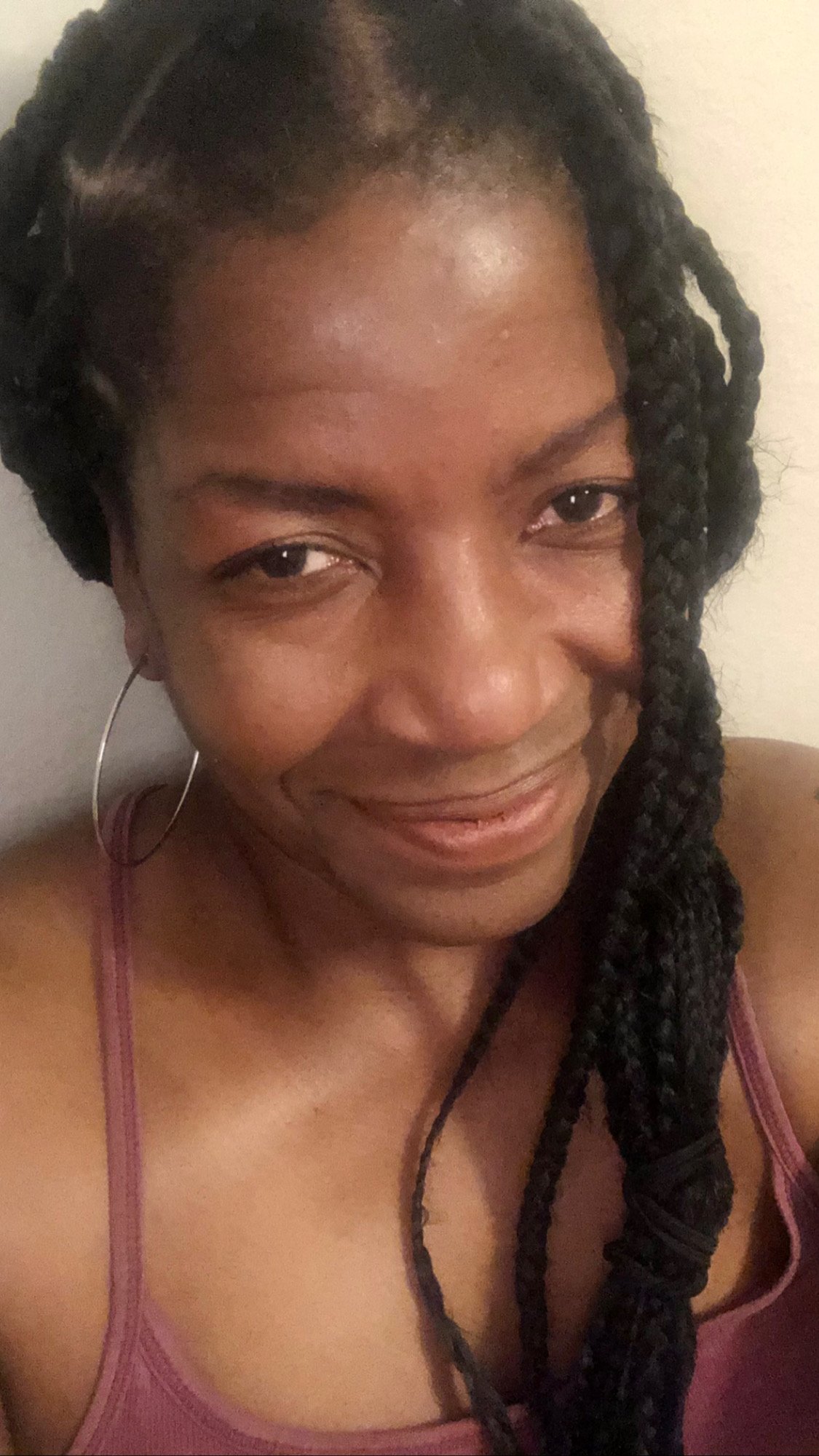
SUSCRIBE to my email newsletter below!
 Click to learn more about the weekly volleyball classes and clinics or email info@imrpoveyourvolley.com for information
Click to learn more about the weekly volleyball classes and clinics or email info@imrpoveyourvolley.com for informationCongratulations to my seven Boys-18s Vegas Volley club players who played in two state championship finals yesterday, the 3A and 5A State champinship finals at Sunrise Mountain High School.
TOURNAMENT CHAMPIONS!
A-1 Vegas Volley VBC
In It To Win It Tournament
May 2 - 4, 2025 Tournament
Gold Medalists
18s Premier Division
Vegas Volleyball's Unsung Heroes: Celebrating Moms with Peace Love Volleyball Shirts
Ready to energize your volleyball mom journey?
Subscribe to my 'Producing Powerful Passionate Peaceful Players' email list above on ImproveYourVolley.com.
You'll receive energy-boosting tips, exclusive insights from me, Coach April Chapple on maintaining momentum in volleyball.
Let's power up the Vegas volleyball scene together!
Recent Articles
-
Tips For Short Volleyball Players: Top Strategies to Beat Big Blockers
Jan 21, 26 04:56 PM
You don't need to be 6 feet tall to dominate at the net. Learn my tips for short volleyball players to use to outsmart bigger blockers and score more points. -
Essential Skills for a Hitter in Volleyball: Tips For Short Attackers
Jan 11, 26 07:05 AM
A short hitter in volleyball can aim the ball for the seam of the block to score since its harder for defenders to block at the net or dig up in the back row. -
10 Hitting Tactics Short Volleyball Players Use Against Big Blockers
Jan 11, 26 06:57 AM
These are 10 hitting tactics that short volleyball players, can rely on hit against and sideout and score against teams with big blockers in the front row.
